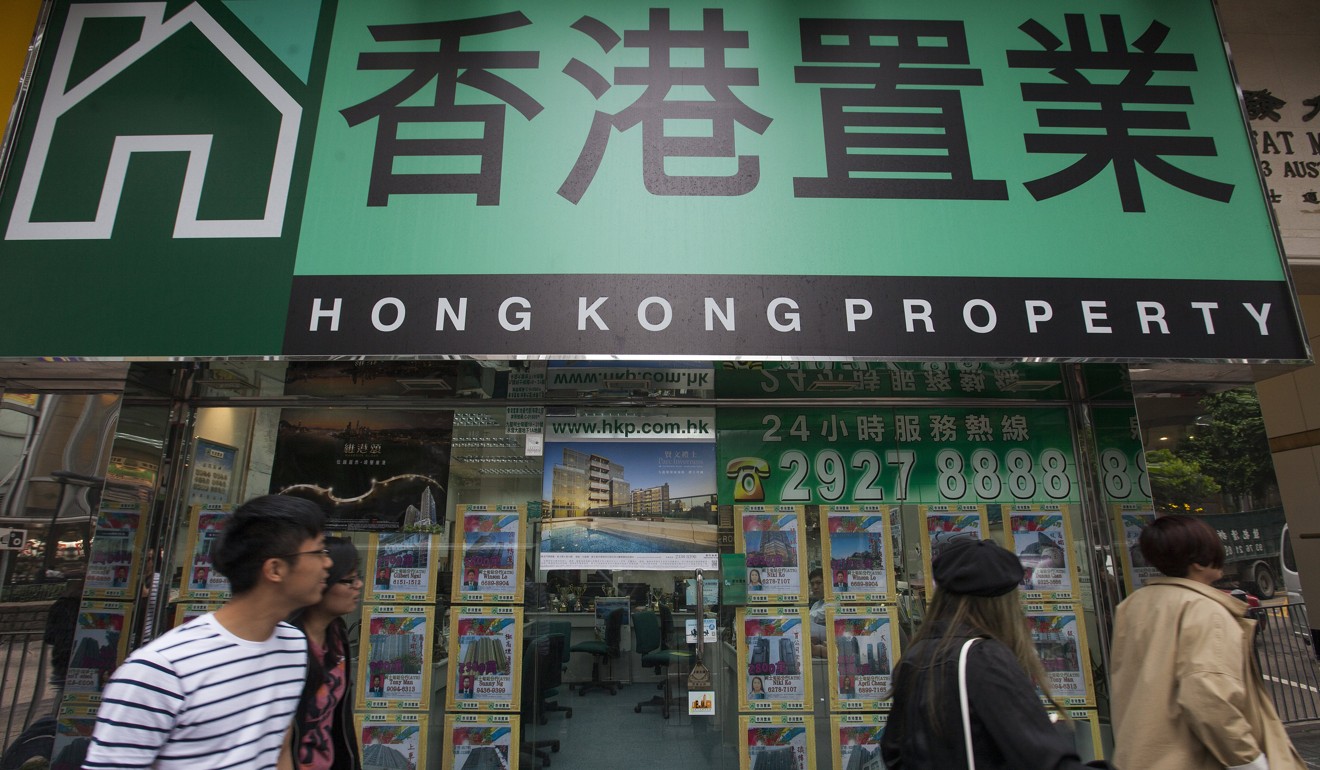
Analysis | Hong Kong government lacks creative ideas to tackle soaring home prices
Strong sales at new residential projects over the past holiday weekend have shown that the market wants creative housing plans such as the “starter home scheme” instead of verbal warnings from top officials when it comes to tackling soaring home prices.
A total of 440 new flats were sold over the three-day holiday despite the government’s housing price index hitting an all-time high, in defiance of Hong Kong Monetary Authority chairman Norman Chan Tak-lam’s warning on Saturday that it was “very irrational” to enter the market based on expectations that home prices would never go down.
Statistics from the Rating and Valuation Department showed that home prices reached a record high in August after 17 consecutive months of increases.
The situation is putting further pressure on Hong Kong Chief Executive Carrie Lam Cheng Yuet-ngor’s attempts to bring housing prices under control.
Chan’s warning came a day after the latest half-yearly monetary and financial stability report from the city’s de facto central bank, which highlighted the growing trend of young homebuyers relying on help from their parents. That support even went so far as parents taking out mortgages on the family’s main residence to help fund flat purchases by the children, the authority said.
Chan’s economics lecture will do little except to remind the city’s residents how ineffective their government has been in dealing with skyrocketing housing prices.
According to Centaline Property Agency, the growth rate in housing prices has exceeded that of the local stock market in recent years. The agency’s Centaline City Index topped its peak of 2015 in February this year, eight months ahead of the Hang Seng Index which beat its April 2015 peak this week.
Increasing land supply won’t meet the immediate demand in the city because the housing index hit an all-time high even though the government exceeded its annual target of supplying 18,000 new private homes – with six months to spare.
In the six months to September the government provided via tender land for 18,260 units, according to figures revealed last week.
The government has shown it has run out of imaginative ideas in failing to cap housing price growth after launching a series of cooling measures, including double stamp duty, which market observers such as property agency JLL have criticised for freezing the secondary housing market by making it harder to buy and sell used homes.
While these measures might help prevent property speculation, the tactic won’t work in Hong Kong’s current housing market where the strong demand dominated by end users.
The Inland Revenue Department said last month that 3,411 residential transactions were required to pay extra stamp duty during the month, exceeding the previous peak of 3,298 deals in March, suggesting that the cooling measure has been losing effectiveness.

However, expectations of a starter home scheme pledged by the Chief Executive has made buyers of Wings at Sea think twice, according to Louis Chan, Asia-Pacific vice-chairman and managing director for residential sales at Centaline Property Agency.
The scheme refers to proposed subsidised housing to help young home buyers get on the property ladder.
The plan was generally welcomed by market players, including Centaline, and prompted some developers to accelerate sales of projects offering relatively affordable units before the chief executive reveals details in her maiden policy address next week.
In 2012 former Chief Executive Leung Chun-ying introduced a “Hong Kong Property for Hong Kong People” scheme at one housing project in Kai Tak, restricting flat sales in that development to Hongkongers for 30 years, but the scheme has since been mostly dormant.
Perhaps one reason for the government’s apparent inability to find creative ways to cap housing price growth is fear of failure, after former chief executive Tung Chee-wah’s misfortune in having his aggressive 85,000 housing plan coincide with the financial tsunami in 1998 – and bearing responsibility in the subsequent property market crash.
Yet two decades later, government bureaucrats should have recovered from this failure. Society expects the government to table more creative and concrete plans to cap endless growth in home prices instead of introducing more complicated stamp duty schemes or simply increasing land supply.

